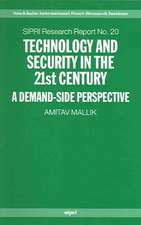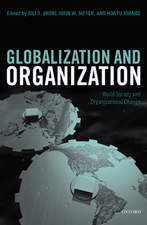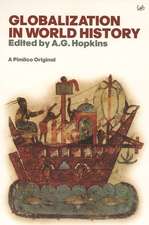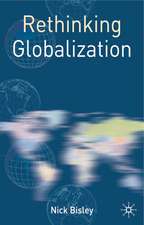Political Economy and Global Affairs
Autor Andrew C. Sobelen Limba Engleză Paperback – 14 oct 2005
To add context, Sobel presents a concise but detailed historical overview of globalization that demonstrates the shortcomings of common macro-level models in the field, from realism to liberalism to hegemonic stability theory. Your students will be equipped with a set of analytic tools that better explain individual behavior and social outcomes in areas such as trade liberalization, institutional bargains, factor endowments, currency exchange systems and convertibility, and development.
Special features:
Exercises at the end of each chapter encourage students to apply the concepts they've just read about.
A suggested reading list for each chapter provides rich sources for further study.
Valuable figures and tables as well as highlighted key terms and a glossary help students grasp important concepts and aid in study.
Photos enliven the book's presentation and provide visual examples to help students understand core concepts.
Preț: 924.82 lei
Preț vechi: 1266.88 lei
-27% Nou
177.01€ • 182.42$ • 149.44£
Carte tipărită la comandă
Livrare economică 03-17 martie
Specificații
ISBN-10: 156802861X
Pagini: 453
Ilustrații: 1
Dimensiuni: 191 x 233 x 23 mm
Greutate: 0.87 kg
Ediția:Revised.
Editura: SAGE Publications
Colecția CQ Press
Locul publicării:Washington DC, United States
Cuprins
Introduction: Concepts, History, and Social Science
Assumptions, Rationality, and Context
Structure of the International System
Power and Hierarchy in the International System
Economic Liberalism and Exchange in the Global Arena
Baseline Framework: Political Markets and Exchange
PART TWO: CONTEXT
Around the World in Eighty Days: The Advent of Globalization
The World Between the Wars: A Breakdown in Globalization
The Bretton Woods System: The Rebuilding of Globalization
The World Post–Bretton Woods: Globalization Advances
Détente and the End of the Cold War: Globalization During Transition
PART THREE: MICRO TOOLS
Political and Economic Market Failure and Social Traps
Dilemma of Collective Goods, Solutions, and Hegemonic Stability
Interest Groups and International Economic Foundations of Political Cleavage
Institutions
Notă biografică
Andrew C. Sobel holds a Ph.D. from the University of Michigan. He is associate professor and Director of Undergraduate Studies in the Political Science Department at Washington University in St. Louis. He is also resident fellow in the Center in Political Economy at Washington University and serves on the board of the Center for New Institutional Social Sciences. He specializes in the politics of international finance with a focus on domestic explanations of international behavior. His books include Domestic Choices, International Markets (1994) and State Institutions, Private Incentives, Global Capital (1999). Sobel¿s current research is comparing globalization in the late 1800s and late 1900s and its relationship to the modern social welfare state, and investigating the linkages between democracy and growth.
















